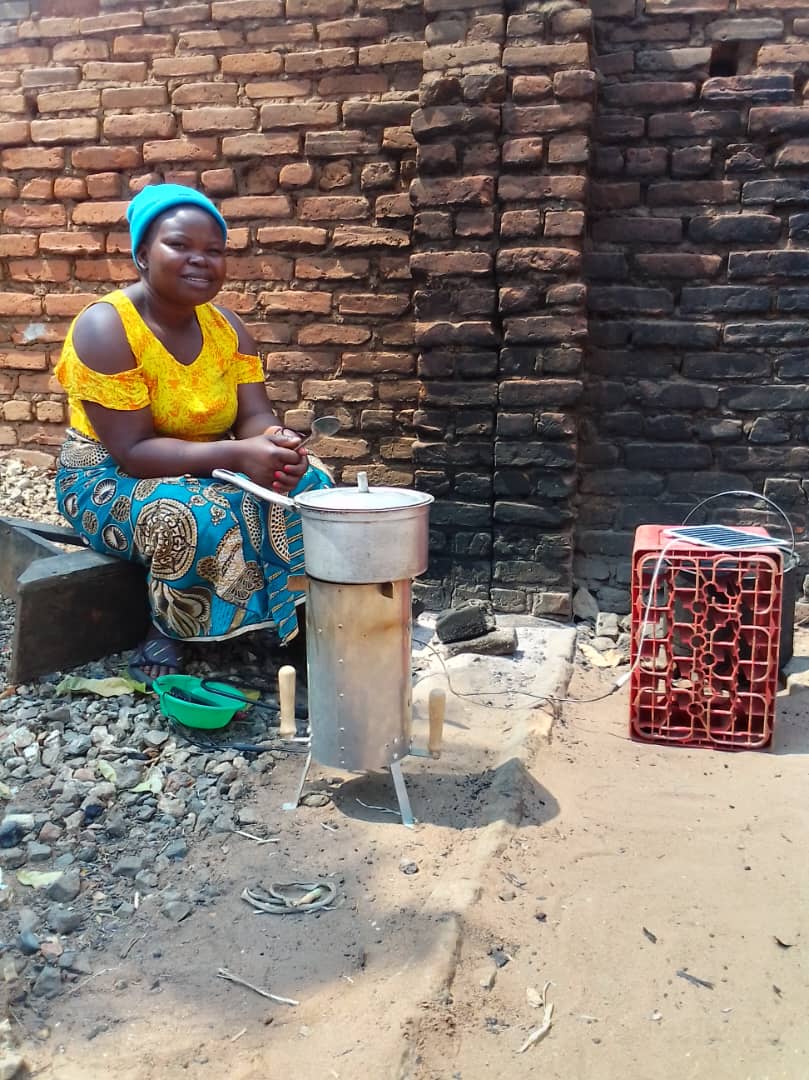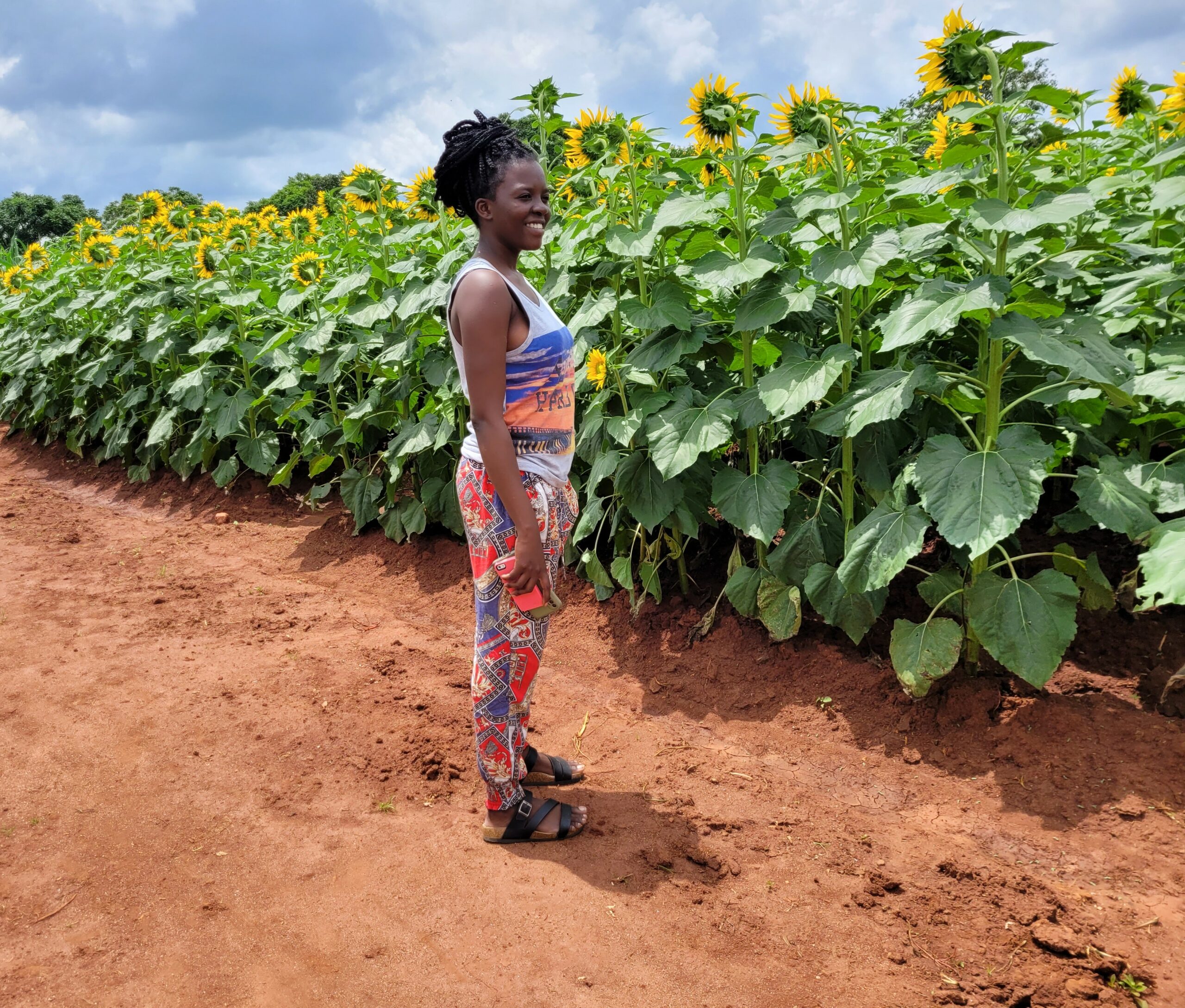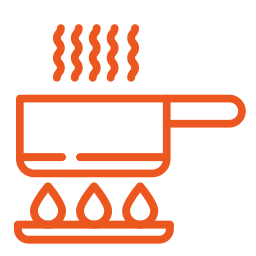Malawi Living Lab


Living lab description
The living lab in Malawi is located Waliranji community in Mchinji district, central Malawi. The living lab is developing a concept around healthier and more efficient cookstoves using biomass briquettes as fuel, not wood. The work is a cooperation between Going Green a Malawian female led social impact company, the Swedish company Make it Green and the research partner Research Institutes of Sweden (RISE).
The business concept is that Going Green in partnership with Make it Green is responsible for the manufacture and assembly of an improved cooking stove called the MIG Bio Cooker.
The target group are contracted farmers that Going Green buy sunflower seeds from to produce cooking oil. From the sunflower there will be biomass residues that can be used to produce fuel briquettes. The concept is relevant to the community since in rural areas traditional cooking methods are inefficient and polluting, contributing to poor health.
Living lab activities
- An improved prototype stove, the MIG BioCooker was developed and adapted to the selected region in Malawi and available biomass, not wood. • Example of available biomass is sunflower residues.
- A small-scale briquetting technology has been identified and tested with sunflower residues. Using briquettes makes the combustion more efficient since they burn longer. The briquettes are created by compacting these loose biomass residues into solid cubes that can replace, charcoal and natural firewood. • The sunflower briquettes have been analysed and tested in the cook stove.
- Emission measurement has been performed and fine tuning of the stove is ongoing to decrease emissions as CO and PM2,5. Sunflower residues is a challenging fuel with high ash content, and it takes time to ignite but the fan makes it easier and quicker than the normal expected time.
- The cook stove has been tested by women preparing a meal in 90 households.
Planned activities
- Build up a production line in Malawi by sending tools for assembling the stove.
- Evaluation and lesson learned of 20 stoves.
- Establish a supply chain for briquettes, currently there are no companies that sell briquettes in rural areas in Mchinji.
Description of the problem addressed
The main economic activity in Waliranji community is agriculture. Land cultivation requires extensive land clearing. This has led to massive depletion of natural forests reserves. Depletion of forests has been exacerbated by heavy reliance on charcoal and firewood as the main sources of cooking energy. The predominant cooking practices are cooking on three stone open fires. Firewood and other solid as plastics are placed between the stones. Smoke is produced and inhaled by those cooking. All these issues pose a threat to development of Malawi, environment, and health.
Living Lab objectives
1
Adapt and validate a cooking stove called MIG BioCooker to a commercial product, in order to be implemented in the selected region.
2
Develop a local fuel supply chain for cooking stoves by testing new biomass alternatives for the selected regions to reduce deforestation.
3
Develop a value chain for local entrepreneurs, supporting them in an acceleration process.

Technology being tested
The MIG BioCooker, adapted to the selected region in Malawi, is a solar-biomass hybrid cooking device designed to combust biomass fuels more efficiently and cleaner than traditional open fires or rudimentary stoves. The BioCooker utilizes a variety of feedstock from biomass to provide heat for cooking and produces biochar as a byproduct. The efficiency of the MiG BioCooker plus its ability to combust any dry solid biomass fuel reduces the need for unsustainably harvested wood fuel.
The MiG BioCooker has a built-in fan that improves the combustion. The fan is driven by a power bank, which in turn has been charged by a solar panel. The power bank as well as the solar panel can be mounted permanently on the cooking stove for easier handling. The power bank can also be used to recharge a mobile phone or for lighting.
To increase the efficiency fuel briquettes can be used. Sunflower production in the area gives biomass residues that can be briquetted and used as fuel. A suitable briquetting technology has been identified and tested with sunflower stalks. The technology has capacity of 10-25 kg/h and produce cubic-shaped briquettes that are of good size for a cooking stove (30 × 30 x 30 mm).
Number of assets

Cookstoves
20

Tools for assembling
1 set

Briquetting press
1 (Capacity 10-25 kg/h)

Biomass shredder
1
MALAWI LIVING LAB OUTCOMES
Progress through clean energy and local enterprise
Adapting and validating the “MIG BioCooker” as a commercial product
SESA successfully adapted and validated the MIG BioCooker, an advanced clean cooking stove, for commercial implementation in Malawi. This initiative provides a sustainable and efficient cooking solution, directly addressing health issues from indoor air pollution and inefficient energy use.
-
Advanced Stove Technology: The MIG BioCooker is an ISO-tested (Tier 4-5), biomass- based, fan-assisted clean cooking solution. It integrates a solar panel, which also powers a power bank for lighting (torches) and phone charging.
-
Household Integration and Benefits: 20 MIG BioCooker stoves were assembled and distributed to 19 households for long-term validation. User feedback and continuous fine- tuning informed the stove’s design. This led to a 50% reduction in cooking time and an 80% reduction in CO and PM2.5 emissions, significantly improving indoor air quality and health. All participating households noted financial improvements, with 70% citing reduced fuel costs and 30% gaining more time for income-generating activities.
Developing a local fuel supply chain for cooking stoves
-
Sustainable Briquette Production: SESA implemented briquetting and shredder technology to process locally available biomass residues, such as sunflower stalks and sawdust, into clean-burning briquettes. These briquettes, sized at 3cmx3cm, are suitable for cooking stoves.
-
Farmer Engagement and Distribution Network: 90 farmer clubs delivered sunflower stalks for briquette production, establishing a localized raw material supply. Two employeesare now working in briquette production, and 12 selling agents distribute the briquettes across villages surrounding the factory, serving 5-10 customers per seller per day. This has enabled 100 households to use briquettes monthly, successfully substituting traditional firewood and charcoal.
Developing a value chain for local entrepreneurs
-
Empowering Farmers with Solar Irrigation: In partnership with Smart Energy Enterprise (SEE), SESA provided affordable, loan-based solar pump solutions to smallholder farmers.25 solar-powered irrigation systems were deployed to 46 smallholder farmers through a lease-to-own business model, achieving an impressive 96% loan recovery rate. This intervention led to a 100% increase in agricultural production for participating farmers, significantly boosting their income. 46 smallholder farmers (60% male, 40% female) were trained in irrigation scheme management.
- Job Creation in Clean Cooking: 7 individuals (all male) were trained in the assembly and repair of the MIG BioCooker, establishing a local ground repair team and creating new job
opportunities. The network of 12 selling agents for briquettes also represents additional income streams for local entrepreneurs.
-
Widespread Capacity Building: Going Green conducted extensive trainings, reaching 5,000 farmers (3,703 females and 1,297 males) on clean cooking solutions, crop production, andpost-harvest handling. This training model included 200 club leaders and traditional leaders who, after being trained, cascaded the knowledge by training an additional 25members each, ensuring widespread adoption and local ownership. 34 people (19 males, 19 females) from 19 households were trained on the operation and management of the MIG BioCooker.
Quantifiable Impact in Malawi (Mchinji)
MIG BioCooker (solar PV/power bank) & Briquette Production
20 MIG BioCookers distributed to 20 households
Cooking time reduced by 50% on average
778 Kg/year of CO₂ emissions reduced
24.3 Kg/year of PM2.5 emissions reduced
10 selling agents, 100 customers
Capacity Building & Skills Development
5041 participants engaged, 74% female
23 people trained
Quantifiable Impact in Malawi (Karonga)
Solar-powered irrigation
3564 Kg/year of CO₂ emissions reduced
25 solar-powered irrigation systems deployed
101 new customers
46 Karonga Smallholder farmers trained, 40% female
11.85% economic growth
Jobs created
11 direct jobs (combining both living labs)
Capacity Building & Skills Development
46 participants engaged
1 person trained





